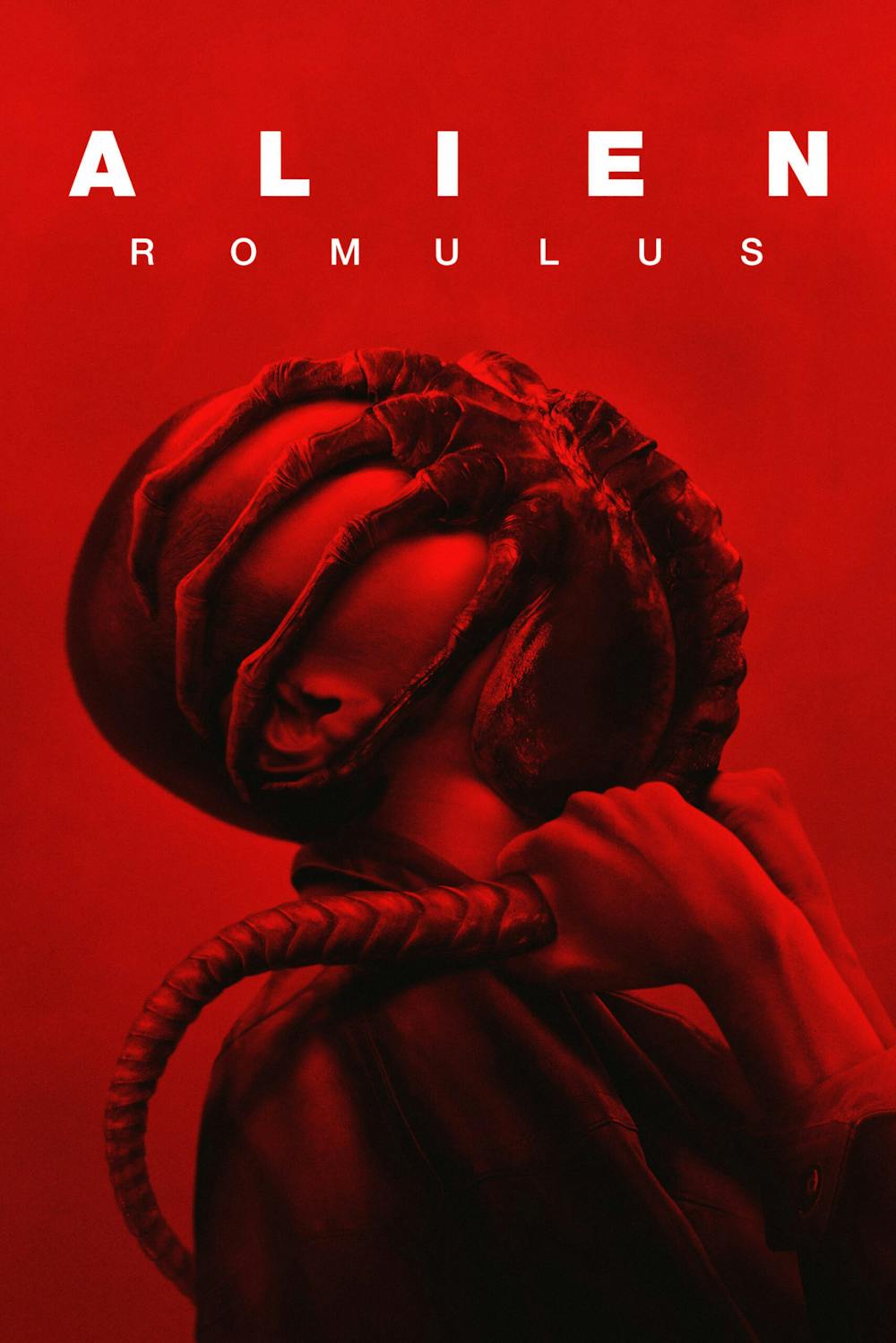Review: ‘Alien: Romulus’ sacrifices subtext. That’s alright.

Stars: ★★★½
In 1979, general audiences first bore witness to the grotesque horror of the chest-burster scene in the original “Alien” — and the extraterrestrial thriller genre was never quite the same. Since then, the franchise has birthed eight more films, although the series has significantly evolved in terms of tone, genre and message in ways that have not always been well-received by critics and diehard fans alike. With the recent release of “Alien: Romulus,” however, Fede Álvarez has, for better or worse, returned the franchise to its roots.
Rain Carradine (Cailee Spaeny) and Andy (David Jonsson) shine, and their relationship was a persistent thread of hope in a film that was full of bleak moments. It’s difficult to grill the performances of their fellow actors too harshly, simply due to the nature of an “Alien” movie — we doubt the acting talent was intended to be the primary or even secondary draw of this film. We are saddened to report, though, that there are scenes in which you will most likely find yourself either exasperated or yelling at the screen as a character does something foolish (because obviously, you would display the utmost astuteness when faced with a giant, organ-consuming, apex predator in the cold depths of space).
Álvarez, in taking over from previous directors of the franchise, was faced with quite a difficult task. He could continue the show-don’t-tell style narrative worldbuilding of Ridley Scott’s “Prometheus” and “Alien: Covenant.” He could pivot the franchise back toward the mindless/moronic action offered by the later “Alien” and “Predator” films. But when Rain crawls through the dark, ominous water aboard the station, you don’t ponder the lore implications and you aren’t aroused by an upcoming shootout – you are transfixed by the screen, breath-bated in anticipation. What Álvarez chose to do was to take the viewer back to 1979, back to that first time you were petrified, not hopeful, of what could be out there in the night sky.
And overall, he does a fine job of it. The third act does suffer from overuse of the Xenomorph threat, although we did find the live-birth of the human-xenomorph hybrid a brief, yet effective invigoration of energy the film so sorely needed at that point. Would we have preferred for the human-xenomorph creature to have a role of greater prominence within this film? Probably, unless the overall runtime, 119 minutes, was simply cut down to not include any mention of the outcome of Kay’s pregnancy. One narrative choice made by Álvarez that we greatly appreciated was making all of the protagonists young adults/teens, bypassing the largest (and blandest) criticism of “Prometheus” — the trained scientists touching the foreign biological specimens and panicking. The fact that our protagonists are untrained, immature and reckless does help justify some of their decisions, but as with any movie in this space, expect dumb decisions to drive the plot.
The most important question in picking out a film for movie night, contrary to popular belief, isn’t actually whether or not the movie is good, but whether or not it is suitable for your viewing. I suspect that, unless you are an expectant parent, synthetic android or cosmic horror, you’ll get a kick out of the film, and then forget about it by tomorrow. And that’s alright.
More from The Rice Thresher

Andrew Thomas Huang puts visuals and identity to song
Houston is welcoming the Grammy-nominated figure behind the music videos of Björk and FKA twigs on June 27.

Live it up this summer with these Houston shows
Staying in Houston this summer and wondering how to make the most of your time? Fortunately, you're in luck, there's no shortage of amazing shows and performances happening around the city. From live music to ballet and everything in between, here are some events coming up this month and next!

Review: 'Adults' couldn’t have matured better
Sitcoms are back, and they’re actually funny. FX’s “Adults” is an original comedy following a friend group navigating New York and what it means to be an “actual adult.” From ever-mounting medical bills to chaotic dinner parties, the group attempts to tackle this new stage of life together, only to be met with varying levels of success.

Please note All comments are eligible for publication by The Rice Thresher.